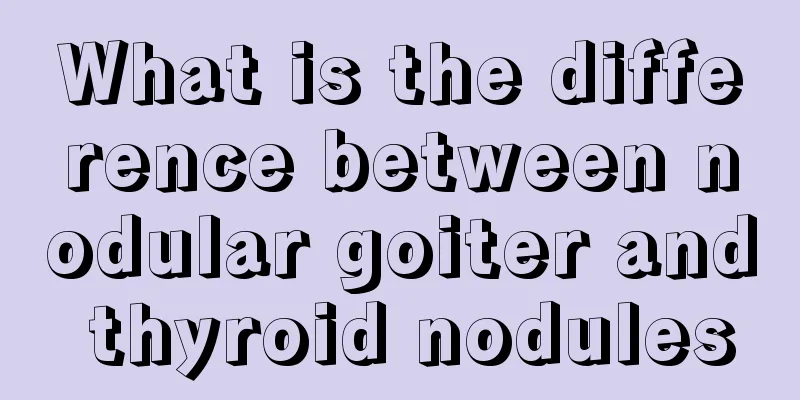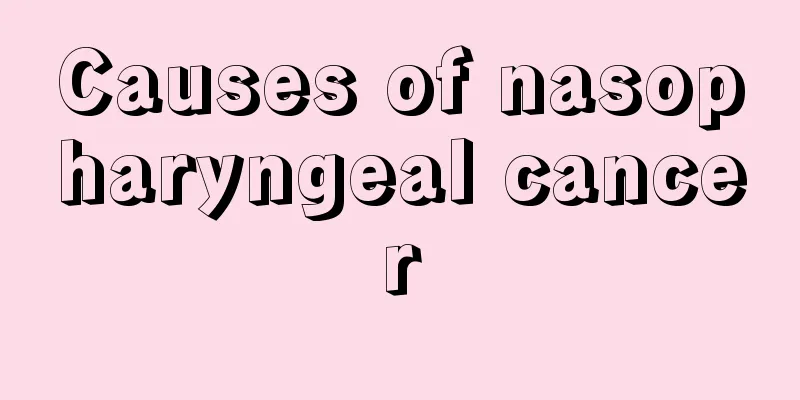What is the difference between nodular goiter and thyroid nodules

|
Generally speaking, most thyroid nodules are benign. They may occur alone or together with other diseases. Some have endocrine effects. Simple goiter is easier to diagnose. Generally speaking, the disease lasts for a long time and there are no other symptoms. The clinical manifestations are also normal. If you use drugs to treat the thyroid, you can shrink the nodules, but thyroid nodules can only be confirmed through accurate examinations. The patient had a long history of simple goiter. The age of onset is generally over 30 years old. There are more women than men. The degree of thyroid enlargement varies and is often asymmetric. The number and size of nodules vary, generally there are multiple nodules, and in the early stages there may be only one nodule. The nodules are soft or slightly hard, smooth and non-tender. Sometimes the boundaries of the nodules are unclear, and the surface of the thyroid gland only feels irregular or lobed when touched. The disease progresses slowly and most patients are asymptomatic. Larger nodular goiters may cause compressive symptoms, including difficulty breathing, dysphagia, and hoarseness. Acute bleeding into a nodule may cause a sudden increase in size and pain; symptoms may subside within a few days, and an enlarged mass may decrease in size over a few weeks or longer. When nodular goiter develops hyperthyroidism (Plummer's disease), the patient has symptoms such as fatigue, weight loss, palpitations, arrhythmia, heat intolerance, sweating, and irritability, but there is no local vascular murmur or tremor in the thyroid gland, exophthalmos is rare, and finger tremor is also rare. Symptoms in elderly patients are often atypical. Whether the patient has a history of radiation exposure, oral medication history and family history, whether the patient comes from an area where goiter is endemic, etc. Generally, nodular goiter has a long history, with no compression symptoms and no symptoms of hyperthyroidism. Most patients do not care about it and come for medical examination only when they accidentally discover thyroid nodules. If it is a hot nodule, also known as a toxic nodule, the patient is mostly over 40 to 50 years old, the nodule is of medium hardness, there are symptoms of hyperthyroidism, and even atrial fibrillation and other arrhythmias may occur. If there is bleeding, there may be pain or even fever. When the nodules are large, compression symptoms may occur, such as dysarthria, difficulty breathing, chest tightness, shortness of breath, and irritating cough. Finally, let me tell you what food is suitable for patients with nodular goiter. First of all, they should eat more foods high in iodine, such as kelp and seaweed, as well as some hair algae and scallops. Seafood is rich in iodine. There are also some foods that can disperse swelling, such as rapeseed, etc. Finally, you can also eat more foods that enhance immunity. |
<<: What can I eat every day to avoid constipation?
>>: What causes shoulder blade pain
Recommend
What stage is the lymph node metastasis of kidney cancer?
Renal cancer lymph node metastasis generally belo...
How to improve body metabolism?
There are always some girls around me who can nev...
Can lymphoma be cured? What should I pay attention to in my diet?
Can lymphoma be cured? What should I pay attentio...
How to remove the astringency of water persimmon
With the rapid development of science and technol...
What Chinese medicine can help me gain weight?
There are all kinds of people in society. Some pe...
What are the side effects of interventional treatment for liver cancer? Beware of 5 side effects of interventional treatment for liver cancer
Liver cancer is a common malignant tumor disease....
Will using hair removal cream cause body odor?
Many female friends who love beauty will use depi...
Eyes are red and feel like there is something in them
In today's life and work, many people face co...
What are the benefits of boiling eggs with walnut branches?
Walnut branches and eggs are both common in daily...
What to do if a tooth crack hurts?
When you have painful tooth cracks, you must unde...
How can brain cancer be cured better?
I believe most people are familiar with brain can...
What should not be eaten in the early stage of brain cancer
Once you have a brain tumor, your body will becom...
Which department should I go to for bloody stools? Which department should I go to for bloody stools?
When people discover abnormal phenomena in their ...
What to do if your eyes are burned
If you accidentally get an eye burn in your life,...
Treating uterine cancer starts with understanding its symptoms
More and more gynecological diseases are plaguing...









